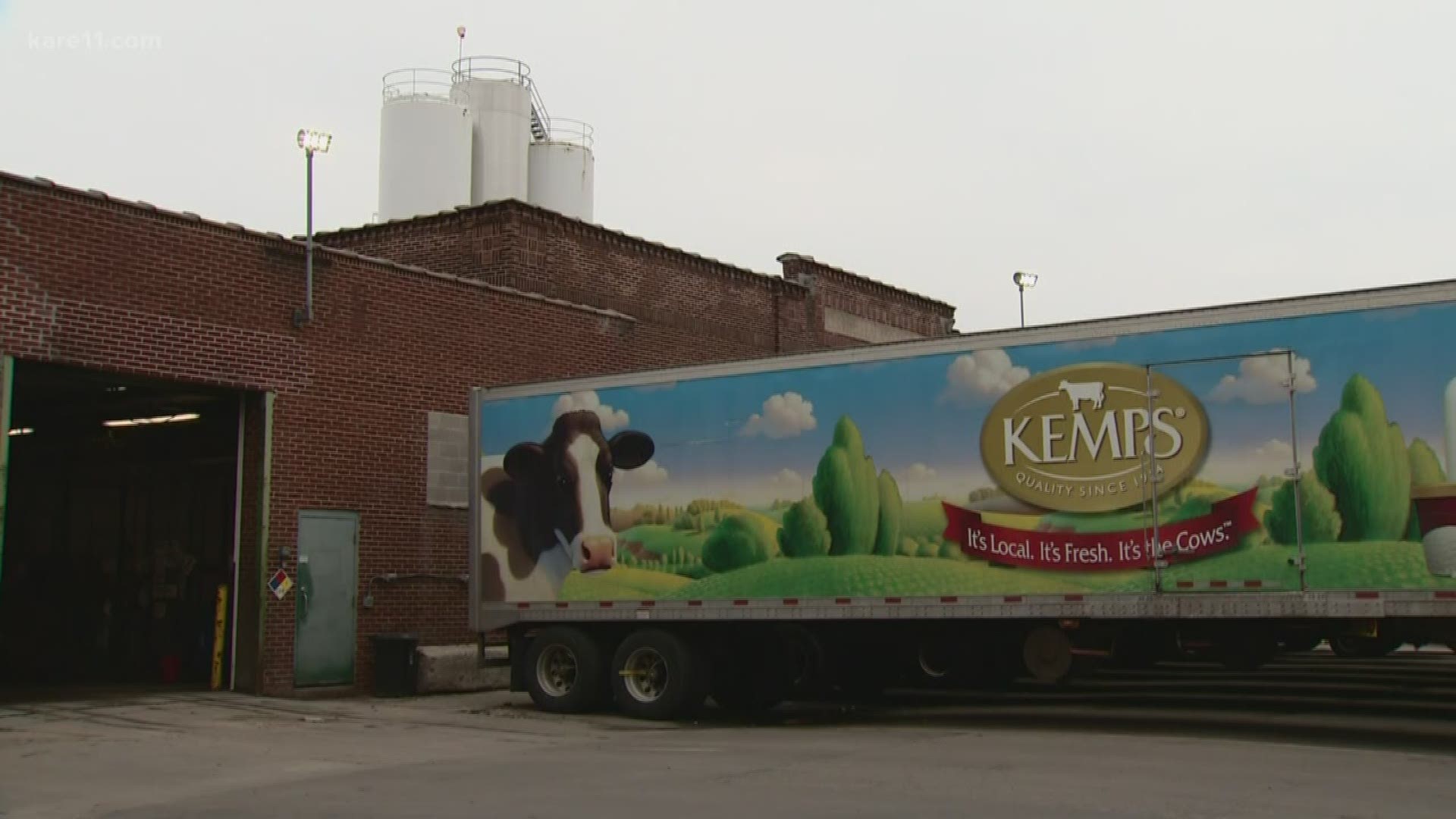MINNEAPOLIS — The images defied logic.
On one hand, Facebook photos showed farmers in Wisconsin dumping milk.
On the other hand, in the Twin Cities, some grocery store milk coolers stood empty.
What gives?
Take if from dairyman Marty Hallock, “Nobody wants to dump milk.”
Hallock milks cows near Mondovi, Wisconsin and serves on the board of the Ellsworth Cooperative Creamery.
“The biggest challenge is how rapidly this change came,” Hallock said.
Almost instantly, thanks to COVID-19, demand shifted from cheese – primarily sold in now shuttered bars and restaurants – to the bottled milk now being guzzled in stay-at- home households.
For Wisconsin’s already suffering dairy industry, it’s been a perfect storm.
“In the state of Wisconsin about 90 percent of the milk is made into cheese. Ten percent is fluid,” Hallock explained.
Cheese plants like Ellsworth Creamery aren't set up to bottle milk.
And bottling plants, like the one operated by KEMPS in Minneapolis, only have capacity to bottle so much.
Changing a cheese plant to a bottling plant could take months, while the demand for fluid milk is now.
“Somewhere there's a line that made them little butter patties that's sitting empty right now,” Hallock said, because those butter patties went to restaurants.
Ellsworth Creamery, the Minnesota State Fair's supplier of curds, is working overtime turning excess milk into cheese destined for storage.
Still, the creamery sent out letters late last week urging its farmers to reduce production through cow sales and feeding changes.
The Ellsworth Creamery also offered financial incentives to dairymen who liquidate their herds altogether.
Both measures are meant to stave off milk dumping.
Pam Jahnke of the Midwest Farm Report called the situation both tragic and heartbreaking.
“It really causes mental stress on a group of people that already had a lot of mental stress,” the Madison-based farm broadcaster said.
In a letter, Wisconsin's entire congressional delegation urged the U.S..Secretary of Agriculture to step up government purchases of cheese for food shelves.
Hallock added his two cents for any policymakers who might be reading this.
“Don’t drag your feet,” the dairyman said.
KARE 11’s coverage of the coronavirus is rooted in Facts, not Fear. Visit kare11.com/coronavirus for comprehensive coverage, find out what you need to know about the Midwest specifically, learn more about the symptoms, and see what companies in Minnesota are hiring. Have a question? Text it to us at 763-797-7215. And get the latest coronavirus updates sent right to your inbox every morning. Subscribe to the KARE 11 Sunrise newsletter here. Help local families in need: www.kare11.com/give11.
The state of Minnesota has set up a hotline for general questions about coronavirus at 651-201-3920 or 1-800-657-3903, available 7 a.m. to 7 p.m.

